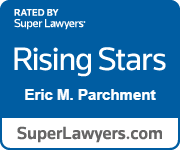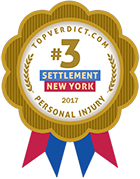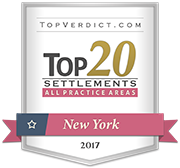Ready to Fight for You
Nursing Home Negligence Lawyer
If you or a loved one has experienced neglect or abuse in a nursing home facility in Long Island, it is crucial to seek legal representation to hold the responsible parties accountable. The Law Offices of Mark E. Weinberger P.C. works with nursing home negligence cases and is dedicated to advocating for the rights of those who have been mistreated. With years of experience and a track record of success, our team is here to provide the support and guidance you need during this challenging time.
PAY NOTHING UNLESS YOU WIN. Contact us for a FREE consultation.
What Constitutes Nursing Home Negligence in Long Island?
Nursing home negligence is a serious issue that can lead to significant harm and suffering for elderly residents. Understanding what constitutes negligence in a nursing home setting is crucial for identifying and addressing these issues. In Long Island, nursing home negligence can encompass a variety of actions or failures to act, leading to the detriment of a resident’s health and well-being. Here are some key factors that constitute nursing home negligence:
Inadequate Medical Care
Negligence often involves failing to provide appropriate medical care, which can include:
- Delayed or Improper Treatment: Not addressing medical conditions promptly or providing incorrect treatment.
- Medication Errors: Administering the wrong medication or incorrect dosages, leading to adverse health effects.
- Ignoring Medical Needs: Failing to follow prescribed treatment plans or neglecting to monitor the health conditions of residents.
Poor Hygiene and Sanitation
Maintaining a clean and sanitary environment is essential for preventing infections and ensuring the health of residents. Negligence in this area includes:
- Unsanitary Conditions: Dirty living spaces, including bedding and bathrooms, that can lead to infections and other health problems.
- Lack of Personal Hygiene: Failing to assist residents with personal hygiene needs, such as bathing, grooming, and changing soiled clothing.
Inadequate Staffing
Proper staffing levels and training are crucial for ensuring residents receive the care they need. Negligence related to staffing includes:
- Understaffing: Having too few staff members to adequately care for all residents, leading to neglect.
- Untrained or Incompetent Staff: Employing staff who lack the necessary training or skills to provide proper care, resulting in substandard treatment.
Emotional and Psychological Abuse
Negligence can also involve emotional or psychological harm, such as:
- Verbal Abuse: Staff members speaking to residents in a demeaning, threatening, or humiliating manner.
- Isolation: Unnecessarily isolating residents from social interactions, causing feelings of loneliness and depression.
Physical Abuse and Neglect
Direct physical harm or neglect of physical needs is a clear sign of negligence, including:
- Physical Abuse: Hitting, pushing, or otherwise physically harming a resident.
- Neglect: Failing to provide adequate food, water, or assistance with mobility, leading to malnutrition, dehydration, or bedsores.
Financial Exploitation
Taking advantage of residents financially is another form of negligence, such as:
- Theft: Stealing money, property, or personal items from residents.
- Fraud: Coercing or deceiving residents into signing financial documents or making transactions that benefit the perpetrator.
Violation of Residents’ Rights
Residents of nursing homes have specific rights that must be upheld. Violations of these rights can constitute negligence, including:
- Privacy Violations: Failing to respect residents’ privacy during personal care or medical treatment.
- Denial of Autonomy: Ignoring residents’ preferences and choices regarding their daily lives and care.
Identifying and addressing nursing home negligence is critical to protect the health, safety, and dignity of elderly residents. If you suspect that a loved one is a victim of nursing home negligence in Long Island, it is essential to seek legal assistance. The Law Offices of Mark E. Weinberger P.C. specialize in advocating for the rights of nursing home residents and holding negligent facilities accountable.
How Can a Long Island Nursing Home Negligence Lawyer Help?

At The Law Offices of Mark E. Weinberger P.C., we understand the profound impact that nursing home negligence can have on the lives of elderly residents and their families. As dedicated Long Island nursing home negligence lawyers, our goal is to provide the support, expertise, and legal representation you need to seek justice and ensure your loved one’s well-being. Here’s how we can help:
Thorough Investigation
Our team conducts a comprehensive investigation into the circumstances surrounding the suspected negligence. This includes collecting medical records, incident reports, and witness statements to build a strong case. We also consult with medical professionals and nursing home care experts to understand the extent of the negligence and its impact on the resident.
Legal Expertise and Guidance
Navigating the legal complexities of nursing home negligence cases can be daunting. We provide clear, informed guidance on your legal options and the best course of action to take. We’ll develop a tailored legal strategy that focuses on achieving the best possible outcome for your case.
Advocacy and Representation
We are committed to advocating fiercely on behalf of nursing home residents. Our services include preparing and filing all necessary legal documents to initiate a negligence claim against the nursing home and representing you in court proceedings, ensuring your case is presented effectively and persuasively.
Negotiation and Settlement
Many nursing home negligence cases can be resolved through negotiation and settlement. We work to engage in discussions with insurance companies and nursing home representatives to seek fair compensation without the need for a lengthy trial. We ensure any settlement reached adequately covers the damages and future care needs of the resident.
Seeking Compensation
Our goal is to obtain maximum compensation for the harm caused by negligence. This can include covering the costs of medical treatment, rehabilitation, and ongoing care, compensation for the emotional and physical pain endured by the resident. Additionally, in cases of egregious misconduct, seeking punitive damages to hold the facility accountable and deter future negligence.
Protecting Residents’ Rights
We are passionate about safeguarding the rights and dignity of nursing home residents. Our commitment includes holding negligent facilities and staff accountable for their actions to prevent further harm to other residents and working towards systemic changes in nursing home policies and practices to improve the standard of care provided to all residents.
Providing Emotional Support
Dealing with nursing home negligence can be emotionally taxing. We understand the emotional strain you are under and providing empathetic support throughout the legal process. We strive to keep you informed and reassured at every step, ensuring you never feel alone in your fight for justice.
If you suspect that your loved one has been a victim of nursing home negligence in Long Island, don’t hesitate to reach out to us. At The Law Offices of Mark E. Weinberger P.C., we are dedicated to providing the legal support and advocacy you need to protect your loved one’s rights and well-being. Contact us today for a free consultation and let us help you take the first step towards justice.
The Different Types of Nursing Home Negligence
Negligence in nursing homes can take many forms, each with potentially severe consequences for the vulnerable individuals entrusted to these facilities. Understanding the different types of nursing home negligence can help families recognize signs of mistreatment and take appropriate action. Here are the main categories of nursing home negligence:
- Medical Negligence: Medical negligence involves the failure to provide adequate medical care, which can lead to severe health complications or even death. This type of negligence includes:
- Administering the wrong medication or incorrect dosages, leading to adverse reactions or untreated conditions.
- Failing to diagnose or treat medical conditions promptly, exacerbating the resident’s health issues.
- Not properly monitoring residents with chronic conditions, resulting in preventable medical emergencies.
- Neglect of Basic Needs: This type of negligence occurs when a nursing home fails to provide for the basic needs of its residents, including:
- Failing to provide adequate food and water, leading to malnutrition and dehydration.
- Not assisting residents with personal hygiene, such as bathing, grooming, and oral care, which can lead to infections and other health issues.
- Maintaining unsanitary living conditions, such as dirty rooms and bedding, which can create health hazards.
- Emotional and Psychological Neglect: Emotional and psychological neglect can severely impact a resident’s mental health and overall well-being. This includes:
- Unnecessarily isolating residents from social activities and interactions, leading to feelings of loneliness and depression.
- Verbal abuse, humiliation, or intimidation by staff, which can cause severe emotional distress.
- Physical Neglect: Physical neglect involves failing to assist residents with their physical needs, which can result in significant harm, including:
- Not providing adequate help with mobility, leading to falls and related injuries.
- Not regularly repositioning bedridden residents, resulting in painful and potentially dangerous bedsores.
- Failing to supervise residents properly, leading to accidents or wandering, especially for those with cognitive impairments.
- Financial Exploitation: Financial exploitation involves taking advantage of residents for monetary gain, such as:
- Stealing money, valuables, or personal items from residents.
- Coercing or deceiving residents into signing financial documents, making unwarranted purchases, or altering wills and trusts.
- Violation of Residents’ Rights: Residents of nursing homes have specific rights that must be upheld, and violations of these rights constitute negligence, including:
- Not respecting residents’ privacy during personal care or medical treatment.
- Ignoring residents’ preferences and choices regarding their daily activities and care.
- Inadequate Staffing: Inadequate staffing levels can lead to widespread neglect in nursing homes, such as:
- Having too few staff members to meet the needs of all residents, leading to inadequate care.
- Employing staff who lack the necessary training and skills to provide proper care, resulting in substandard treatment.
Recognizing the various forms of nursing home negligence is crucial for protecting your loved ones from harm. If you suspect that your family member is a victim of nursing home negligence, it is essential to take immediate action.
Signs Your Loved One Might Be a Victim of Negligence
Identifying signs of nursing home negligence can be challenging, but being vigilant about changes in your loved one’s condition and behavior is crucial. Negligence in nursing homes can manifest in various physical, emotional, and environmental ways. Here are some key signs that your loved one might be a victim of negligence:
Physical Signs of Neglect
Physical indicators are often the most apparent and can include unexplained injuries, such as bruises, cuts, fractures, or other injuries that staff cannot explain. Keep an eye out for weight loss or poor hygiene.
Behavioral and Emotional Changes
Negligence can severely affect a resident’s mental and emotional well-being, leading to depression or lack of interest in activities. A key warning sign is when your loved one withdraws from social interactions or has a sudden unexplained change in personality.
Environmental Indicators
The overall condition of the nursing home environment can also reveal signs of negligence, such as dirty or cluttered living spaces. If personal items go missing, it may indicate theft or mismanagement.
Medical Issues
Pay attention to medical concerns that may suggest neglect. This may include untreated medical conditions or if your loved one is frequently visiting the hospital, especially for preventable issues.
Financial Irregularities
Financial exploitation is a form of negligence that may present as unusual financial activity and missing personal items.
What To Do If You or Someone You Love is Experiencing Nursing Home Negligence in Long Island
Discovering that a loved one may be experiencing nursing home negligence is distressing and can leave you feeling helpless. However, there are critical steps you can take to address the situation, protect your loved one, and ensure they receive the proper care they deserve. Here’s a guide on what to do if you or someone you love is experiencing nursing home negligence in Long Island:
- Recognize the Signs: Before taking action, it’s important to recognize the signs of nursing home negligence, which can include unexplained injuries, poor hygiene, sudden weight loss, emotional changes, and unsanitary living conditions. Being aware of these indicators will help you identify when intervention is necessary.
- Talk to Your Loved One: Have an open and compassionate conversation with your loved one about their experiences. They may be reluctant to speak out due to fear of retaliation or not wanting to cause trouble. Reassure them that their well-being is your priority and that you want to help them.
- Document Everything: Keep detailed records of any signs of neglect, including dates, times, specific incidents, and photographs if possible. This documentation will be crucial for any investigations or legal actions that may follow.
- Report to Nursing Home Administration: Bring your concerns to the attention of the nursing home administration. Schedule a meeting with the facility’s management to discuss the issues you’ve observed. Ensure you provide them with your documented evidence and request that they take immediate action to address the situation.
- Contact Local Authorities: If the nursing home administration fails to address your concerns adequately, or if the situation is urgent, report the negligence to local regulatory agencies. In Long Island you can contact:
- New York State Department of Health: The department oversees nursing home regulations and can conduct investigations into complaints.
- Adult Protective Services (APS): APS can intervene in cases of abuse, neglect, or exploitation of vulnerable adults.
- Local Law Enforcement: In cases of severe abuse or criminal activity, involving the police may be necessary.
- Seek Medical Attention: Ensure that your loved one receives appropriate medical care for any injuries or health issues resulting from the negligence. This may involve transferring them to another healthcare facility or seeking the services of a trusted medical professional.
- Consult a Nursing Home Negligence Lawyer: Legal expertise is invaluable when dealing with nursing home negligence. Consulting a specialized lawyer can help you understand your rights and the best course of action. At The Law Offices of Mark E. Weinberger P.C., our experienced attorneys can assist you with:
- Evaluating Your Case: Assessing the details of your situation to determine if negligence occurred.
- Filing a Complaint: Guiding you through the process of filing a formal complaint against the nursing home.
- Pursuing Legal Action: Representing you in court to seek justice and compensation for the harm your loved one has suffered.
- Consider Relocation: Depending on the severity of the negligence and the response from the facility, you may need to consider relocating your loved one to a safer and more reputable nursing home. Ensure the new facility has a good track record and meets all required standards of care.
- Stay Involved: Continue to be actively involved in your loved one’s care. Regular visits and communication with the nursing home staff can help ensure that your loved one receives the attention and care they need.
Addressing nursing home negligence requires vigilance, action, and the right support. If you or a loved one is experiencing negligence in a Long Island nursing home, The Law Offices of Mark E. Weinberger P.C. are here to help. Contact us today for a free consultation and let us assist you in protecting your loved one’s rights and well-being.
Who Can Be Held Liable for Nursing Home Negligence?
In cases of nursing home negligence, multiple parties may be held accountable for the harm caused to residents. Understanding who can be held liable is crucial for seeking justice and ensuring that those responsible are properly addressed. Here’s an overview of the key parties who may be held liable for nursing home negligence:
Nursing Home Facility
The nursing home facility itself can be held liable for negligence. This includes the entity that owns and operates the home, as well as its management. The facility is responsible for:
- Ensuring that the premises are free from hazards and comply with health and safety regulations.
- Hiring qualified personnel and maintaining appropriate staff-to-resident ratios.
- Ensuring that all staff members are adequately trained to care for residents and handle emergencies.
Nursing Home Administrators
Administrators who manage the day-to-day operations of the nursing home can also be held liable. Their responsibilities include:
- Monitoring the performance of staff and the quality of care provided to residents.
- Enforcing policies and procedures designed to protect residents and ensure high standards of care.
- Promptly and effectively addressing any complaints or concerns raised by residents or their families.
Nursing Staff
Nurses, aides, and other caregivers who provide direct care to residents can be held liable for:
- Failing to provide necessary care, leading to harm such as bedsores, malnutrition, or dehydration.
- Engaging in physical, emotional, or verbal abuse.
- Administering incorrect medications or failing to follow medical protocols.
Medical Professionals
Doctors, therapists, and other healthcare providers who treat nursing home residents can be held liable for:
- Misdiagnosing conditions, providing improper treatment, or failing to respond to medical needs in a timely manner.
- Ignoring signs of illness or failing to conduct regular check-ups.
Third-Party Contractors
Service providers hired by the nursing home, such as maintenance crews, cleaning services, or food suppliers, can be held liable if:
- Their actions or inactions contribute to unsafe conditions or directly harm residents.
- Not adhering to safety and health standards required by law or the facility’s policies.
Owners and Operators
The individuals or entities that own and operate the nursing home can be held liable for:
- Financial mismanagement, understaffing, or creating policies that lead to inadequate care.
- Failing to oversee and ensure that the facility operates in compliance with all applicable laws and standards.
Pharmaceutical Companies
In some cases, pharmaceutical companies can be held liable if:
- Errors are due to mislabeled drugs or harmful medications provided to residents.
Identifying and holding the appropriate parties accountable in nursing home negligence cases can be complex. At The Law Offices of Mark E. Weinberger P.C., our experienced attorneys are dedicated to uncovering the truth and ensuring that justice is served.
Compensation You May Be Entitled To
If you or a loved one has been a victim of nursing home negligence, you may be entitled to various forms of compensation. The specific compensation can vary depending on the circumstances of the case but generally includes:
- Medical Expenses: Coverage for medical bills related to injuries or illnesses caused by the negligence, including hospital stays, medications, and rehabilitation.
- Pain and Suffering: Compensation for physical pain and emotional distress resulting from the negligence.
- Mental Anguish: Damages for the psychological impact and trauma experienced due to the negligent care.
- Loss of Enjoyment of Life: Compensation for the diminished quality of life and inability to participate in previously enjoyed activities.
- Punitive Damages: In cases of particularly egregious conduct, punitive damages may be awarded to punish the negligent party and deter similar behavior in the future.
- Wrongful Death: If negligence leads to the death of a resident, surviving family members may be entitled to compensation for funeral expenses, loss of companionship, and other related damages.
At The Law Offices of Mark E. Weinberger P.C., we are dedicated to helping you secure the full compensation you deserve. Contact us today to discuss your case and explore your legal options.
The Law Offices of Mark E. Weinberger P.C.: Your Trusted Partner in Nursing Home Negligence Cases
At The Law Offices of Mark E. Weinberger P.C., we understand the devastating impact that nursing home negligence can have on residents and their families. Our team of experienced attorneys is dedicated to fighting for justice on behalf of those who have suffered due to the negligence of nursing home staff, contractors, owners, operators, or pharmaceutical companies. We have a proven track record of success in holding responsible parties accountable and securing fair compensation for our clients.
If you suspect that your loved one has been a victim of nursing home negligence, don’t hesitate to contact us for a free consultation.
Long Island Nursing Home Negligence Lawyer FAQs
1. What is nursing home negligence?
Nursing home negligence occurs when a facility or its staff fails to provide the standard of care that is reasonably expected, resulting in harm to the residents. This can include neglect, abuse, poor medical care, and unsafe living conditions.
2. What are common signs of nursing home negligence?
Common signs include unexplained injuries, bedsores, weight loss, poor hygiene, emotional changes, unsanitary conditions, and frequent hospital visits. Be vigilant for any physical, emotional, or behavioral changes in your loved one.
3. Who can be held liable for nursing home negligence?
Liable parties can include the nursing home facility, administrators, nursing staff, medical professionals, third-party contractors, owners and operators, and sometimes pharmaceutical companies, depending on the specifics of the case.
4. What steps should I take if I suspect nursing home negligence?
If you suspect negligence, document all signs and incidents, talk to your loved one, report your concerns to the nursing home administration, and contact local authorities if necessary. Consulting a nursing home negligence lawyer is also crucial to protect your loved one’s rights.
5. What types of compensation can I receive for nursing home negligence?
Compensation may include coverage for medical expenses, pain and suffering, mental anguish, loss of enjoyment of life, punitive damages, and, in cases of wrongful death, funeral expenses and loss of companionship.
6. How long do I have to file a nursing home negligence lawsuit in Long Island?
In New York, the statute of limitations for filing a nursing home negligence lawsuit is typically three years from the date of the injury. However, it’s essential to consult with an attorney as soon as possible to ensure timely filing.
7. Can I file a lawsuit if my loved one has passed away due to negligence?
Yes, if your loved one has passed away due to nursing home negligence, you may file a wrongful death lawsuit. This can help cover funeral expenses, loss of companionship, and other related damages.
8. How can a nursing home negligence lawyer help?
A lawyer can help by evaluating your case, gathering evidence, filing legal claims, representing you in court, and negotiating settlements. They ensure that your loved one’s rights are protected and that you receive the compensation you deserve.
How Can We Help You?
Fields marked with an * are required
"*" indicates required fields




